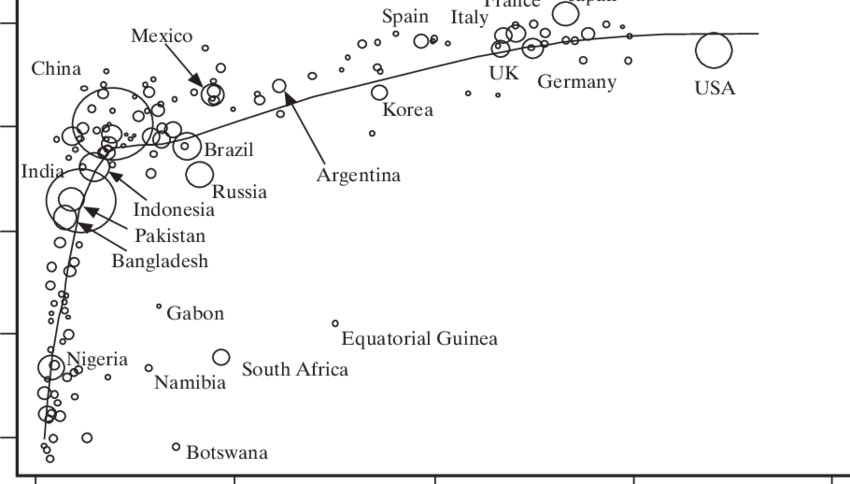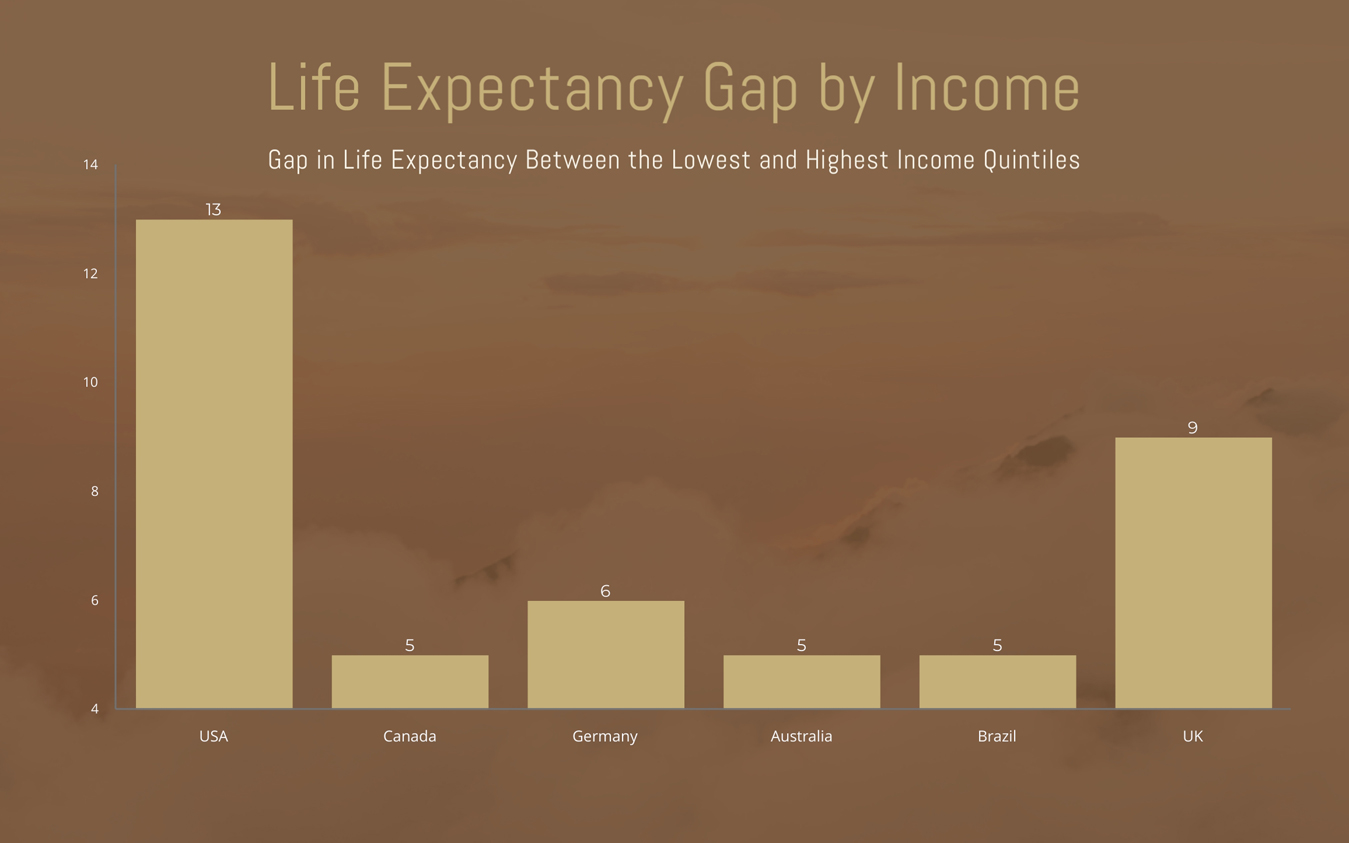“Lives are more important than the economy” is a common line thrown around by politicians to justify committing economic suicide. This argument frames the dilemma politicians face in the pandemic as a very simple one: saving someone’s life is more important than saving someone’s job. Examining the evidence, Lockdown Resistance has discovered this to be a false dilemma. Lockdowns are expected to kill many times more people through economic devastation alone than they will spare from coronavirus.
Economy and Life Expectancy
The economy gets a bad rap. It is not uncommon for it to be portrayed as an evil of society that stifles social progress. Environmental advocates, for instance, make comments such as “the environment is more important than the economy,” when making a case against an industrial project that could harm the environment. However, the economy is inseparable from human wellbeing and health. Take the Preston Curve, for example:
This curve visualizes the relationship between average income and life expectancy. It demonstrates that countries with higher incomes consistently have a longer life expectancy. Within a country, too, personal income is strongly correlated with life expectancy. Figure 2 demonstrates the difference in life expectancy between the lowest and highest income quintiles within select countries.
As you can see, income affects life expectancy even in wealthy countries with universal public healthcare. This effect is graded — each step up on the income ladder is also a step up for life expectancy and overall health. Economic suppression moves many people down the income ladder, and thus down the life expectancy ladder. In cases of long-term economic contraction secondary to lockdowns, the effects can be generational — lower the health status and life expectancy for people not yet born.
The employment rate (the percentage of working-age people who have jobs) is also a strong predictor of life expectancy. A person loses, on average, 1.5 years of life expectancy the moment an unexpected job loss occurs. Studies consistently show higher death rates for the unemployed than the employed. A 2015 NHS report determined that Britons experience a one year drop in life expectancy for every 10% increase in the local unemployment rate.
Associated Press found a similar relationship in the United States with each 10% increase in a community’s unemployment rate reducing life expectancy by 1.5 years. An analysis of the National Longitudinal Mortality Study for 1979 to 1985 found that at age 25, white Americans who were employed lived 10 years longer than unemployed white Americans. Looking at the research, we may conclude that social distancing will cause a large portion of society to die at least a year earlier from its effect on employment levels alone.
The economy and physical health
Life expectancy is but one metric of public health. There is no shortage of research establishing correlations between health and economic indicators. Unemployment is marked by unhealthy behaviors such as smoking, excessive alcohol consumption, and lack of physical activity. Cardiovascular disease is more common among the unemployed. A 3-year follow-up study of over 20,000 heart disease patients in Denmark found a 50% higher rate of death in patients that were unemployed.
Research by the European Commision discovered significantly higher rates of ischemic heart disease in people who were unemployed; a relationship that peaked at 2 years after the onset of unemployment. Older adults, out of work involuntarily for over 90 days, have more than twice the incidence of stroke as employed people of the same age, according to a paper published in the American Journal of Industrial Medicine.
The most immediate effect of the lockdown’s economic toll on physical health is probably from hunger. Everyone needs money to eat. The World Food Programme has estimated that global food insecurity has increased 82% since lockdowns began. In Southern Africa, it has increased 90%. In Latin America, the number of people requiring food assistance has almost tripled. The richest countries also have issues with increased hunger. Many people do not qualify for income assistance to compensate for their lockdown-induced unemployment or reduced income. The head of the WHO estimated that lockdowns cause approximately 10,000 children a month to die of starvation.
Psychological Toll of Unemployment
The psychological effects of unemployment are considerable. Depression is considerably more prevalent among those who are without work. A CDC survey of 235,000 people found that women who experienced a period of unemployment had three times the rate of depression as women who were continuously employed. Self-esteem is also impacted by job loss, often leading to other health issues. A Swedish study found that unemployed people had 10% lower quality of life, owing mostly to depression and anxiety.
Impact of Debt
Many people have seen their personal debt soar during the lockdown. Government aid packages in even the most generous countries don’t compensate for all of the income lost due to the lockdown, and many people don’t qualify for any government assistance. Debt, regardless of income or employment status, comes with its own health impacts. A report by the UK government on health equality in England, Fair Society, Healthy Lives, claims that the larger one’s debt, the more mental health issues one is likely to have. High personal debt is linked to stress, depression, anxiety, suicide, and high blood pressure.
A 2015 study found that greater household debt was associated with lower life expectancy across the 17 European countries surveyed, controlling for socio-economic factors. In a systemic review of studies on the effects of personal debt on health published in BMJ Public Health, indebtedness and financial stress were found to be strongly associated with depression, suicidal ideation, and poor subjective health.
Lockdowns and social distancing wreak havoc on the economy which, in turn, impairs psychological wellbeing, seeds disease, and sends people to an early grave. Far from the “saving lives is more important than protecting jobs” catch phrase of politicians, a strong economy is the best bulwark of public health. A large portion of society will die early just so that politicians can brag that they are winning the war against COVID-19 and portray themselves as heroes.



